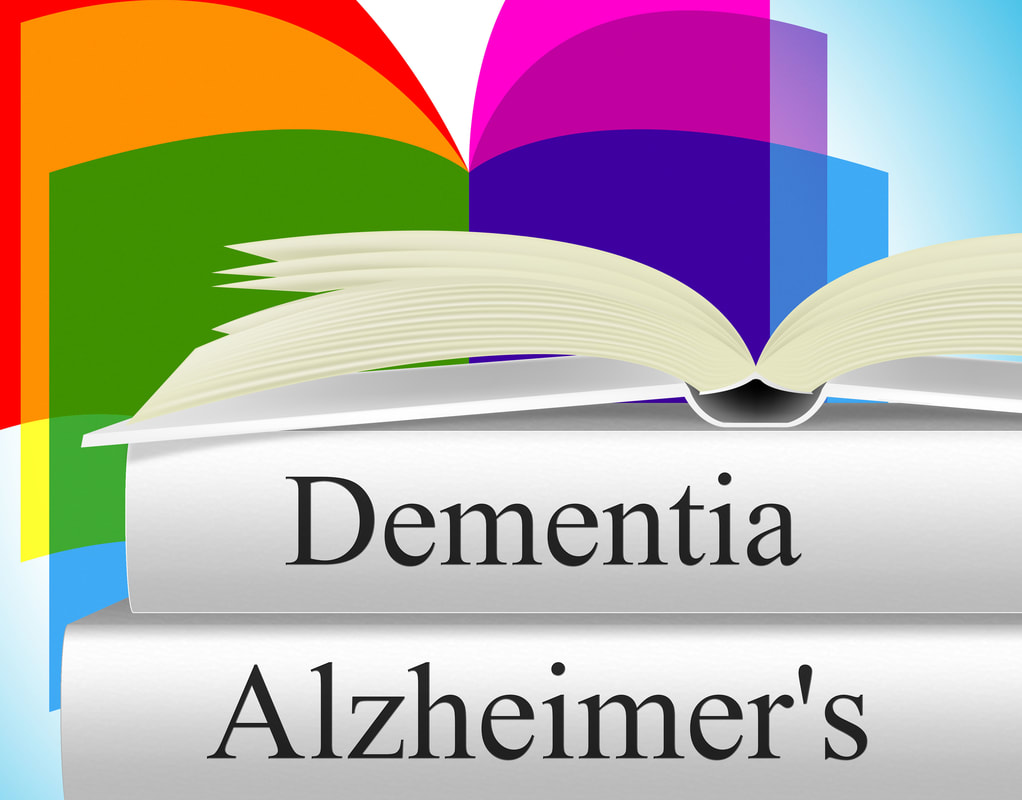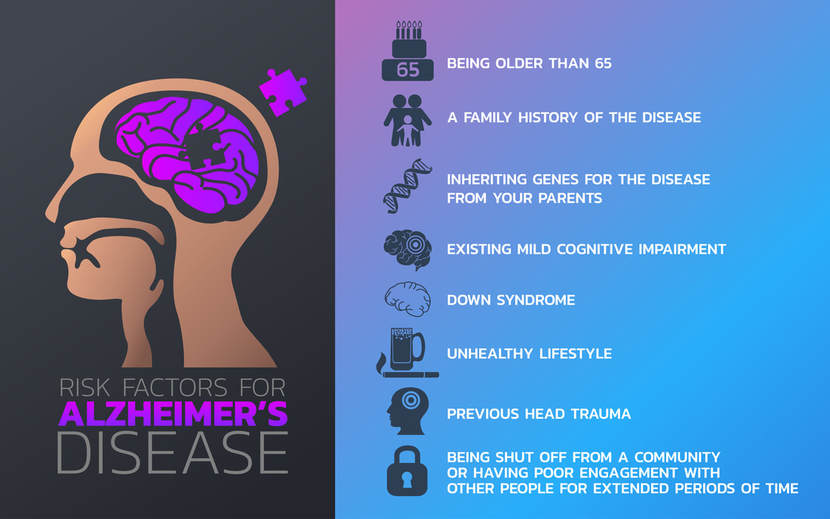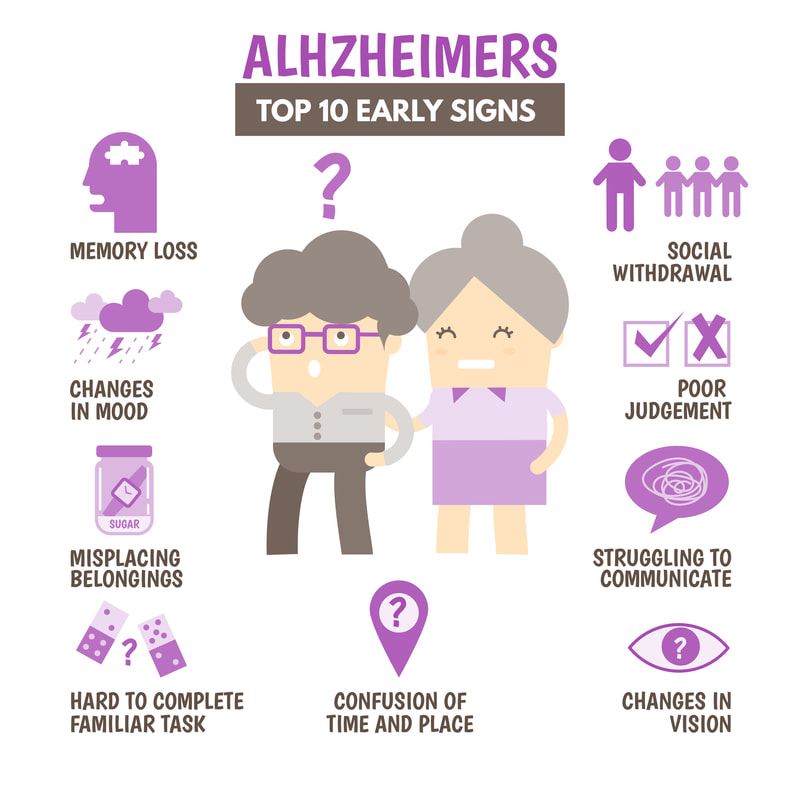- HOME - START HERE
- CONSULTATION SERVICES
- 911 EMERGENCY
- EBOOKS
- Store
- DOSAGES
- HOW TO TAKE
- ANTI-AGING
- CBD AND NIGELLA SATIVA
- RESEARCH SHOWS THAT CANCER RATES WILL RISE DRASTICALLY OVER THE COMING YEARS
- FIBRO CATEGORY
- HERPES CATEGORY
- HIV- Category
- Honey - Category
- Pets
- Top 20 Reasons to use Black Cumin Oil and Capsules
- STROKES CATEGORY
- WEIGHT LOSS CATEGORY
- ANSWER THE QUESTIONS
- Articles
- BLACK SEED OIL IS BETTER THAN TYLENOL FOR ARTHRITIS RELIEF
- Migraines - Headaches - 12 Remedies with Pictures
- My Protocol for Dementia Recovery
- PCOS and Nigella Sativa
- PRIVACY POLICY - GDPR COMPLIANT
- My Team
- About
- Healthy Articles
- Nigella Sativa Online Courses - Part 1
- Childhood Epilepsy
- Natural Diuretics
- Healing Effect on Sarcoidosis
- Nigella Sativa Respiratory Illness
- Cardiovascular Disease
- Depression and COVID19
- 12
- How to Use Nigella Sativa
- How Contagious is Leprosy
- Supporting Human Health - The Immunomodulator
- Nigella Sativa Cancer Ebook
- OK, I am a Muslim - Now What?
- Everything You Ever Wanted to Know About Black Seeds
- Islam Cancer Ebook
- DONATION
- Nigella sativa is an safe alternative Non-Hodgkin’s treatment option
- RESEARCH ON WHY YOU SHOULD HEAT NIGELLA SATIVA SEEDS
- Black Seed Cuisine Ebook
- IS THERE A CURE FOR LUPUS - NATURAL SOLUTIONS
- Black Seed Oil
- TURMERIC DETOX AND MORE
- MASTERS OF HEALING
- PAYMENT RECEIVED
- Non-clickable Page
- IRRITABLE BOWEL SYNDROME - NATURAL SOLUTIONS
- MY CANCER COLLECTION
- CONTACT
BLACK CUMIN SEED OIL GIVES HOPE TO ALZHEIMER'S DISEASE PATIENTS
WRITTEN BY DR. NITA SHARMA NAS - SEE MORE ARTICLES HERE
THIS ARTICLE IS COPYWRITTEN FOR NIGELLA--SATIVA.COM ONLY. ALL RIGHTS RESERVED.
THIS ARTICLE CONTAINS AFFILIATE LINKS TO PRODUCTS WE RECOMMEND. PLEASE READ OUR NEW PRIVACY POLICY.
THIS ARTICLE IS COPYWRITTEN FOR NIGELLA--SATIVA.COM ONLY. ALL RIGHTS RESERVED.
THIS ARTICLE CONTAINS AFFILIATE LINKS TO PRODUCTS WE RECOMMEND. PLEASE READ OUR NEW PRIVACY POLICY.
|
Alzheimer's disease is a neurodegenerative disease condition with a complex etiology.
Alzheimer's disease was first publicly reported in 1906 by the German psychiatrist Alois Alzheimer, but it took 70 years to determine that Alzheimer's disease is a type of progressive dementia. [1] This disease results in irreversible deterioration of the physical and mental condition of the affected individual which further worsens over time. The constant research is ongoing to control the health deteriorative nature associated with this disease. As there are limited conventional medications for Alzheimer's disease, so a suitable complementary treatment can become the only option for the people to limit the progressive nature of the disease. The medical researchers are
|
investigating the traditional remedial resources to find out the novel and effective treatments for Alzheimer's disease. [2]
Herbal supplements are one of the most popular complementary treatments in the United States. According to the study report, almost 82 percent of Americans would like to try herbal medicines in terminally ill conditions. [3]
Among other herbal medicines, the medical experts consider Black seeds or Nigella sativa as a hope to Alzheimer's disease affected patients because of its anti-Alzheimer's effect.
Herbal supplements are one of the most popular complementary treatments in the United States. According to the study report, almost 82 percent of Americans would like to try herbal medicines in terminally ill conditions. [3]
Among other herbal medicines, the medical experts consider Black seeds or Nigella sativa as a hope to Alzheimer's disease affected patients because of its anti-Alzheimer's effect.
What is Alzheimer's disease and why is it a threat to mankind?
Alzheimer's disease affects the brain resulting in memory loss and cognitive impairment. It is an age-related disorder that mostly affects aging populations. People with age of 65 years or more are usually affected by the Alzheimer's disease. However, the “younger-onset” of Alzheimer's disease, i.e. before the age of 65 years is also becoming prevalent. [4]
2018 Alzheimer's Disease Facts and Figures, recently published by Alzheimer's Association reported that 5.7 million US population of all age group are affected by Alzheimer's disease and almost 200,000 Americans of this population are affected with “younger-onset” Alzheimer's disease.
One of the primary reason for increasing prevalence is due to the improvement in the survival rate of aging people. [5] The fact sheet also mentions that one American is affected by Alzheimer's disease in every 65 seconds, and it has become the 6th major cause of mortality in the USA.
Alzheimer's disease is a non-curable condition and is progressive in nature which requires palliative care for the affected individuals. In the USA, an individual having Alzheimer's disease pay approximately $341,840 for his/her healthcare purpose. This cost burden negatively affects the whole nation.
Experts assume that the medical cost for Alzheimer's disease will be raised almost $1.1 trillion by 2050. [5] Hence, it is high time to search an effective and economic treatment for Alzheimer's disease.
Alzheimer's disease affects the brain resulting in memory loss and cognitive impairment. It is an age-related disorder that mostly affects aging populations. People with age of 65 years or more are usually affected by the Alzheimer's disease. However, the “younger-onset” of Alzheimer's disease, i.e. before the age of 65 years is also becoming prevalent. [4]
2018 Alzheimer's Disease Facts and Figures, recently published by Alzheimer's Association reported that 5.7 million US population of all age group are affected by Alzheimer's disease and almost 200,000 Americans of this population are affected with “younger-onset” Alzheimer's disease.
One of the primary reason for increasing prevalence is due to the improvement in the survival rate of aging people. [5] The fact sheet also mentions that one American is affected by Alzheimer's disease in every 65 seconds, and it has become the 6th major cause of mortality in the USA.
Alzheimer's disease is a non-curable condition and is progressive in nature which requires palliative care for the affected individuals. In the USA, an individual having Alzheimer's disease pay approximately $341,840 for his/her healthcare purpose. This cost burden negatively affects the whole nation.
Experts assume that the medical cost for Alzheimer's disease will be raised almost $1.1 trillion by 2050. [5] Hence, it is high time to search an effective and economic treatment for Alzheimer's disease.
Symptoms of Alzheimer's disease
Alzheimer's disease is an outcome of aging. Like any other organs, the interiors of the brain is also changing with increasing age. Most of the elderly people have occasional memory loss due to the lack of support from the memory house of brain (hippocampus).
The patients with Alzheimer's disease have chronic difficulty to remember things due to permanent memory loss. They also have confusion, mental clouding and lacks other essential brain functioning which interferes with their mental and physiological functioning. Following are some typical symptoms of Alzheimer's disease:
• At initial period, patients find difficult to remember newly learned things
• Prominent symptoms of disorientation, mood swing, and behavioral changes are common, and they get confused with simple things including time, place, direction etc.
• Suspicious behavior can be observed towards known persons, including family members, caregivers, and friends.
• Alzheimer's disease is a progressive disease and the condition worsens with time. The patients have complete memory loss, dementia, and even difficulty to speak, swallow and walk. [4]
Alzheimer's disease is an outcome of aging. Like any other organs, the interiors of the brain is also changing with increasing age. Most of the elderly people have occasional memory loss due to the lack of support from the memory house of brain (hippocampus).
The patients with Alzheimer's disease have chronic difficulty to remember things due to permanent memory loss. They also have confusion, mental clouding and lacks other essential brain functioning which interferes with their mental and physiological functioning. Following are some typical symptoms of Alzheimer's disease:
• At initial period, patients find difficult to remember newly learned things
• Prominent symptoms of disorientation, mood swing, and behavioral changes are common, and they get confused with simple things including time, place, direction etc.
• Suspicious behavior can be observed towards known persons, including family members, caregivers, and friends.
• Alzheimer's disease is a progressive disease and the condition worsens with time. The patients have complete memory loss, dementia, and even difficulty to speak, swallow and walk. [4]
What are the changes in the brain associated with Alzheimer's disease?
The complete memory loss is the major consequence of the Alzheimer's disease, but it is important to know the reason because memory loss is also a common symptom for other types of dementia, who may not have Alzheimer's disease.
The brain is a neuronal structure made up of 100 billion nerves, which are connected with each other and other communicating networks. These nerve cells have a different functioning, some are involved in learning, thinking, and memorizing things, while some are helping in the hearing, smelling, and visualizing things.
Brain cells receive signals, store information and correspond accordingly with other organs and to continue this work, the brain requires a huge supply of oxygen.
The Alzheimer's disease affects some definite brain parts and damages some neurons. The gradual spreading causes neurodegenerative irreversible brain damage. Plaque formation and growth of tangles are the two main factors that are responsible to damage brain neurons.
The actual role of plaques and tangles in development of Alzheimer's disease is still not fully understood. However, they hamper the exchange between the brain and other organs and disrupt normal brain functioning which further leads to brain cell death.
• Deposition of beta-amyloid, a protein content in the synaptic regions (space between two nerve cells), form plaques.
• Accumulation of tau protein based twisted fibrous structures inside the brain cell causes tangles.
Note: The scientists demonstrated that most of the people develop a few numbers of plaques and tangles with increasing age. However, a huge amount of plaques and tangles can be detected in the autopsy report of the patients with Alzheimer’s disease. Moreover, in Alzheimer’s disease, plaques and tangles are initially developed in the brain region and then gradually spread from there. [4]
The complete memory loss is the major consequence of the Alzheimer's disease, but it is important to know the reason because memory loss is also a common symptom for other types of dementia, who may not have Alzheimer's disease.
The brain is a neuronal structure made up of 100 billion nerves, which are connected with each other and other communicating networks. These nerve cells have a different functioning, some are involved in learning, thinking, and memorizing things, while some are helping in the hearing, smelling, and visualizing things.
Brain cells receive signals, store information and correspond accordingly with other organs and to continue this work, the brain requires a huge supply of oxygen.
The Alzheimer's disease affects some definite brain parts and damages some neurons. The gradual spreading causes neurodegenerative irreversible brain damage. Plaque formation and growth of tangles are the two main factors that are responsible to damage brain neurons.
The actual role of plaques and tangles in development of Alzheimer's disease is still not fully understood. However, they hamper the exchange between the brain and other organs and disrupt normal brain functioning which further leads to brain cell death.
• Deposition of beta-amyloid, a protein content in the synaptic regions (space between two nerve cells), form plaques.
• Accumulation of tau protein based twisted fibrous structures inside the brain cell causes tangles.
Note: The scientists demonstrated that most of the people develop a few numbers of plaques and tangles with increasing age. However, a huge amount of plaques and tangles can be detected in the autopsy report of the patients with Alzheimer’s disease. Moreover, in Alzheimer’s disease, plaques and tangles are initially developed in the brain region and then gradually spread from there. [4]
How Black seed/Nigella sativa alters etiology of Alzheimer's disease?
Nigella sativa or Black seed is one of the promising and most scientifically researched herbs for treating and preventing Alzheimer's disease. Some of the therapeutic benefits of Black seed, which are effective for preventing and limiting the progression of Alzheimer's disease are mentioned below:
Anti-neurodegenerative effect
The exposure to environmental toxins at the early or mid-age increases the risk of neurodegeneration and causes the onset of Alzheimer's disease. [6] This is one of the primary reason for increasing prevalence of Alzheimer's disease. Black seed or Nigella sativa has protective effects against neurodegeneration in the hippocampus, frontal cortex, and brain stem even in exposure to environmental toxins.
Animal study report showed that exposure to toluene, which causes neurodegeneration in the brain tissue can be protected by administering Black seed. The Black seed and its active constituent Thymoquinone, have the capacity to protect an individual from environmental toxin-induced neurodegeneration. [7]
Nigella sativa or Black seed is one of the promising and most scientifically researched herbs for treating and preventing Alzheimer's disease. Some of the therapeutic benefits of Black seed, which are effective for preventing and limiting the progression of Alzheimer's disease are mentioned below:
Anti-neurodegenerative effect
The exposure to environmental toxins at the early or mid-age increases the risk of neurodegeneration and causes the onset of Alzheimer's disease. [6] This is one of the primary reason for increasing prevalence of Alzheimer's disease. Black seed or Nigella sativa has protective effects against neurodegeneration in the hippocampus, frontal cortex, and brain stem even in exposure to environmental toxins.
Animal study report showed that exposure to toluene, which causes neurodegeneration in the brain tissue can be protected by administering Black seed. The Black seed and its active constituent Thymoquinone, have the capacity to protect an individual from environmental toxin-induced neurodegeneration. [7]
Anti-Alzheimer effect
The complete pathophysiology of Alzheimer's disease has been assessed through different medical research. It has been found that the progressive neurodegeneration in Alzheimer's disease is caused by plaque formation in-between nerve cells.
Aggregation of the 4.2-kD amyloid beta peptide, in the CNS (central nervous system), is responsible for plaque formation and brain atrophy in Alzheimer's disease.
Thymoquinone, the active ingredient of Black seed has a protective effect against the accumulation of amyloid beta peptide in-between nerve cells and also prevent brain cell death. [7]
Anti-oxidant property
Black seed possesses very powerful anti-oxidant property which also supports to alter the pathophysiology associated with Alzheimer's disease. The amyloid beta peptide is not only responsible for synaptic plaque formation, but also increases the free radical generation which causes hippocampus (an important brain part) damage and ischemia in the brain tissue.
The antioxidant effect of Black seed inhibits the free radical generation and significantly decreases free radicals activities in the hippocampal tissue. These effects are scientifically proved. An animal research showed that pre-treatment with Black seed supplementation, which is a rich source of Thymoquinone, can able to provide all these benefits in the experimental group. [7]
Black seed has similar therapeutic strategies like any other anti-Alzheimer therapeutic agent
The anti-Alzheimer therapeutic agent aims to inhibit acetylcholinesterase enzyme functioning, which reduces the acetylcholine hydrolysis. The phenolic compounds like carvacrol, thymol, and thymoquinone that are present in Black seeds have acetylcholinesterase inhibitory effect. Therefore, Black seed also follows the similar conventional Alzheimer's disease treatment strategy. [7]
The complete pathophysiology of Alzheimer's disease has been assessed through different medical research. It has been found that the progressive neurodegeneration in Alzheimer's disease is caused by plaque formation in-between nerve cells.
Aggregation of the 4.2-kD amyloid beta peptide, in the CNS (central nervous system), is responsible for plaque formation and brain atrophy in Alzheimer's disease.
Thymoquinone, the active ingredient of Black seed has a protective effect against the accumulation of amyloid beta peptide in-between nerve cells and also prevent brain cell death. [7]
Anti-oxidant property
Black seed possesses very powerful anti-oxidant property which also supports to alter the pathophysiology associated with Alzheimer's disease. The amyloid beta peptide is not only responsible for synaptic plaque formation, but also increases the free radical generation which causes hippocampus (an important brain part) damage and ischemia in the brain tissue.
The antioxidant effect of Black seed inhibits the free radical generation and significantly decreases free radicals activities in the hippocampal tissue. These effects are scientifically proved. An animal research showed that pre-treatment with Black seed supplementation, which is a rich source of Thymoquinone, can able to provide all these benefits in the experimental group. [7]
Black seed has similar therapeutic strategies like any other anti-Alzheimer therapeutic agent
The anti-Alzheimer therapeutic agent aims to inhibit acetylcholinesterase enzyme functioning, which reduces the acetylcholine hydrolysis. The phenolic compounds like carvacrol, thymol, and thymoquinone that are present in Black seeds have acetylcholinesterase inhibitory effect. Therefore, Black seed also follows the similar conventional Alzheimer's disease treatment strategy. [7]
|
Black seed/ Nigella sativa prevents Alzheimer's disease
The health conscious people always believe that 'prevention is better than cure'. Black seed/ Nigella sativa cans prevent Alzheimer's disease due to its neuroprotective and anti-oxidant effects. It also boosts memory power and learning capacity. The anti-oxidant property of Black seed improves cognitive performance. Black seed oil significantly improves the viability of neuronal cellular structures and also has a protective effect against toxic beta-amyloid proteins. A research study showed that Black seed oil administration modulates the release of GABA, glutamate, glycine, and aspartate and assist to improve the psychological symptoms associated with Alzheimer's disease. [8] |
|
According to the research results, the antioxidant administration prevents cognitive impairment and improves the memory power of Alzheimer's disease affected individuals.
The strong antioxidant property of Black seed protects hippocampal neurodegeneration and modulate memory power, attention, and cognitive ability in patients suffering from the cerebral ischemic condition, as in Alzheimer's disease. [8]
Direction to use
Different research studies used different extracts of Black seeds to get a higher concentration of its bioactive phytochemicals. Moreover, the equivalent dose of Black seed is much higher than the Black seed oil. [9] One teaspoon of Black seed oil is equivalent to 2.5 teaspoons of Black seeds. [10] Therefore, instead of raw Black seeds, Black seed oil is a good option to get a concentrated form for all the active ingredients.
Some convenient recipes for Black seed oil
The taste of Black seed oil is not very much acceptable because of its bitter flavor. Although, some quick recipes of Black seed oil can help to blunt its taste.
• Combine one teaspoon of Black seed oil with equal amount of honey.
• Mix one teaspoon of Black seed oil with boiled mint.
• Mix one teaspoon of Black seed oil with a green smoothie or fruit juice to mask its taste and flavor.
• A blend of Black seed oil and basil oil can provide a better result. [11, 12]
The strong antioxidant property of Black seed protects hippocampal neurodegeneration and modulate memory power, attention, and cognitive ability in patients suffering from the cerebral ischemic condition, as in Alzheimer's disease. [8]
Direction to use
Different research studies used different extracts of Black seeds to get a higher concentration of its bioactive phytochemicals. Moreover, the equivalent dose of Black seed is much higher than the Black seed oil. [9] One teaspoon of Black seed oil is equivalent to 2.5 teaspoons of Black seeds. [10] Therefore, instead of raw Black seeds, Black seed oil is a good option to get a concentrated form for all the active ingredients.
Some convenient recipes for Black seed oil
The taste of Black seed oil is not very much acceptable because of its bitter flavor. Although, some quick recipes of Black seed oil can help to blunt its taste.
• Combine one teaspoon of Black seed oil with equal amount of honey.
• Mix one teaspoon of Black seed oil with boiled mint.
• Mix one teaspoon of Black seed oil with a green smoothie or fruit juice to mask its taste and flavor.
• A blend of Black seed oil and basil oil can provide a better result. [11, 12]
Future prospect
A recent research study indicates that the co-encapsulation of Nigella sativa oil and plasmid DNA added to the gene delivery carrier can enhance treatment benefits for Alzheimer’s disease. This study shows a new scope for therapeutic application of Black seed oil in Alzheimer’s disease treatment. [13]
WHICH BLACK SEED OIL DO I RECOMMEND?
The only black seed oil I recommend for Alzheimer's Disease is shown on my store - visit here.
A recent research study indicates that the co-encapsulation of Nigella sativa oil and plasmid DNA added to the gene delivery carrier can enhance treatment benefits for Alzheimer’s disease. This study shows a new scope for therapeutic application of Black seed oil in Alzheimer’s disease treatment. [13]
WHICH BLACK SEED OIL DO I RECOMMEND?
The only black seed oil I recommend for Alzheimer's Disease is shown on my store - visit here.
ALTERNATIVE REMEDY
While you may not agree or understand this but one of my relatives was diagnosed with Alzheimer's Disease. The doctor told her all meds had so many side effects and basically sent her home to die. I researched on Curezone and found a doctor who had a very cheap protocol on a completely natural diet. The other requirement was remove all gas appliances out of the home. So she removed all gas heaters, water heaters and cook tops out of the home and replaced them with electric appliances. In just two weeks she was completely recovered, had her voice back, comprehension and memory.
One of the best remedies for memory is to put 1/2 cup of goat yogurt in a jar with 2 dates (it can be dried), 1 tablespoon of olive oil, 1/2 cup of water and a sprig of rosemary. You can use dried rosemary if fresh is not available. Leave in the refrigerator over night. The next morning add in 1/2 tablespoon of Black Seed Oil, remove the stem from the rosemary and grind all in a blender. Drink this first thing in the morning.
While you may not agree or understand this but one of my relatives was diagnosed with Alzheimer's Disease. The doctor told her all meds had so many side effects and basically sent her home to die. I researched on Curezone and found a doctor who had a very cheap protocol on a completely natural diet. The other requirement was remove all gas appliances out of the home. So she removed all gas heaters, water heaters and cook tops out of the home and replaced them with electric appliances. In just two weeks she was completely recovered, had her voice back, comprehension and memory.
One of the best remedies for memory is to put 1/2 cup of goat yogurt in a jar with 2 dates (it can be dried), 1 tablespoon of olive oil, 1/2 cup of water and a sprig of rosemary. You can use dried rosemary if fresh is not available. Leave in the refrigerator over night. The next morning add in 1/2 tablespoon of Black Seed Oil, remove the stem from the rosemary and grind all in a blender. Drink this first thing in the morning.
References
- 2017 ALZHEIMER’S DISEASE FACTS AND FIGURES. Online available at https://www.alz.org/documents_custom/2017-facts-and-figures.pdf
- Edwin L.Cooper, Melissa J.Ma. Alzheimer Disease: Clues from traditional and complementary medicine. Journal of Traditional and Complementary Medicine. Volume 7, Issue 4, October 2017, Pages 380-385. Online available at https://www.sciencedirect.com/science/article/pii/S2225411016303030
- Dietary Supplements. Complementary and Alternative Medicine in the United States. Institute of Medicine (US) Committee on the Use of Complementary and Alternative Medicine by the American Public. Washington (DC): National Academies Press (US); 2005. Online available at https://www.ncbi.nlm.nih.gov/books/NBK83789/
- What Is Alzheimer's ? Online available at https://www.alz.org/alzheimers_disease_what_is_alzheimers.asp
- 2018 Alzheimer's Disease Facts and Figures. Online available at https://www.alz.org/facts/
- Yegambaram Manivannan, Bhagyashree Manivannan, Thomas G. Beach, Rolf U. Halden. Role of Environmental Contaminants in the Etiology of Alzheimer's Disease: A Review. Curr Alzheimer Res. 2015 Feb; 12(2): 116–146. Published online 2015 Feb. doi: 10.2174/1567205012666150204121719.Online available at https://www.ncbi.nlm.nih.gov/pmc/articles/PMC4428475/
- Mohammad Reza Khazdair. The Protective Effects of Nigella sativa and Its Constituents on Induced Neurotoxicity. J Toxicol. 2015; 2015: 841823. Published online 2015 Oct 29. doi: 10.1155/2015/841823. Online available at https://www.ncbi.nlm.nih.gov/pmc/articles/PMC4641935/
- FarimahBeheshti, MahmoudHosseini, FarzanehVafaee, Mohammad NaserShafei, MohammadSoukhtanloo. Feeding of Nigella sativa during neonatal and juvenile growth improves learning and memory of rats. Journal of Traditional and Complementary Medicine
- Volume 6, Issue 2, April 2016, Pages 146-152. Online available at https://www.sciencedirect.com/science/article/pii/S2225411014000534
- Black Seed Oil or Seeds? Online available at Dosage for Black seed oil and Seeds. Online available at https://www.nigella--sativa.com/dosage-for-black-seed-oil-and-seeds.html11.Jessica Chia. A New Memory Booster. Online available at https://www.prevention.com/health/brain-health/new-memory-booster12.Memory and Focus kit. Online available at https://jadebloom.com/memory-kit-black-cumin-seed-focus-brain-blend-basil-empty-rollerball-bottle.html
- Abd Almonem Doolaanea, Nur 'Izzati Mansor, Nurul Hafizah Mohd Nor & Farahidah Mohamed (2016): Co-encapsulation of Nigella sativa oil and plasmid DNA for enhanced gene therapy of Alzheimer’s disease, Journal of Microencapsulation, DOI: 10.3109/02652048.2015.1134689. Published online: 16 Mar 2016. Online available at https://www.researchgate.net/publication/298724129_Co-encapsulation_of_Nigella_sativa_oil_and_plasmid_DNA_for_enhanced_gene_therapy_of_Alzheimer's_disease
|
COME JOIN MY MEMBERSHIP GROUP - DO YOU MISS ME? THE COST IS $9.95 PER MONTH. LEARN THE DEEP SECRETS OF BEING WELL.
PAYMENT LINK HERE |
STORE TESTIMONY CONTACT EBOOKS ABOUT PAGE PRIVATE POLICYAmazon Affiliate Disclosure
https://www.nigellasativacenter.com is a participant in the Amazon Services LLC Associates Program, an affiliate advertising program designed to provide a means for website owners to earn advertising fees by advertising and linking to amazon(.com, .co.uk, .ca etc) and any other website that may be affiliated with Amazon Service LLC Associates Program. “Amazon and the Amazon logo are trademarks of Amazon.com, Inc. or its affiliates.” Please note I am also an affiliate for Mountain Rose Herbs, , Shareasale and More. Please see our full disclosure here: Disclaimer: The information on this page and on this website has not been evaluated by the FDA. We do not diagnose, treat, cure or prevent illness or disease - instead, we try to help people learn how to do so themselves. Anyone who believes they have a serious medical condition or health issue should seek diagnoses from a qualified medical professional before making any decisions on how to best address their health. Furthermore, anyone contemplating using any products or information on this website must accept such use as experimental and voluntary. No claims are made regarding the therapeutic use of the products or information on this website and all products featured or sold on this website must be considered nutritional supplements only. -
Copyright Protected - Nigella Sativa.com - 2022-2025 - All Rights Reserved - Any infringe on our copyright will be prosecuted to the fullest extent of the law.
|
OWNER: SAMANTHA DAVIS
WEBSITE: BASED ON EVIDENCE ADDRESS: PO BOX 437, ZARGA, JORDAN 13110 PHONE: +962-53923471 HOURS: 5PM - 12AM - NY;TIME EMAIL: naturalliving [email protected] CONSULTATION FEES 1 STOP CENTER IS BASED ON ALL MODALITIES OF HEALING, NOT JUST NIGELLA SATIVA |
- HOME - START HERE
- CONSULTATION SERVICES
- 911 EMERGENCY
- EBOOKS
- Store
- DOSAGES
- HOW TO TAKE
- ANTI-AGING
- CBD AND NIGELLA SATIVA
- RESEARCH SHOWS THAT CANCER RATES WILL RISE DRASTICALLY OVER THE COMING YEARS
- FIBRO CATEGORY
- HERPES CATEGORY
- HIV- Category
- Honey - Category
- Pets
- Top 20 Reasons to use Black Cumin Oil and Capsules
- STROKES CATEGORY
- WEIGHT LOSS CATEGORY
- ANSWER THE QUESTIONS
- Articles
- BLACK SEED OIL IS BETTER THAN TYLENOL FOR ARTHRITIS RELIEF
- Migraines - Headaches - 12 Remedies with Pictures
- My Protocol for Dementia Recovery
- PCOS and Nigella Sativa
- PRIVACY POLICY - GDPR COMPLIANT
- My Team
- About
- Healthy Articles
- Nigella Sativa Online Courses - Part 1
- Childhood Epilepsy
- Natural Diuretics
- Healing Effect on Sarcoidosis
- Nigella Sativa Respiratory Illness
- Cardiovascular Disease
- Depression and COVID19
- 12
- How to Use Nigella Sativa
- How Contagious is Leprosy
- Supporting Human Health - The Immunomodulator
- Nigella Sativa Cancer Ebook
- OK, I am a Muslim - Now What?
- Everything You Ever Wanted to Know About Black Seeds
- Islam Cancer Ebook
- DONATION
- Nigella sativa is an safe alternative Non-Hodgkin’s treatment option
- RESEARCH ON WHY YOU SHOULD HEAT NIGELLA SATIVA SEEDS
- Black Seed Cuisine Ebook
- IS THERE A CURE FOR LUPUS - NATURAL SOLUTIONS
- Black Seed Oil
- TURMERIC DETOX AND MORE
- MASTERS OF HEALING
- PAYMENT RECEIVED
- Non-clickable Page
- IRRITABLE BOWEL SYNDROME - NATURAL SOLUTIONS
- MY CANCER COLLECTION
- CONTACT







